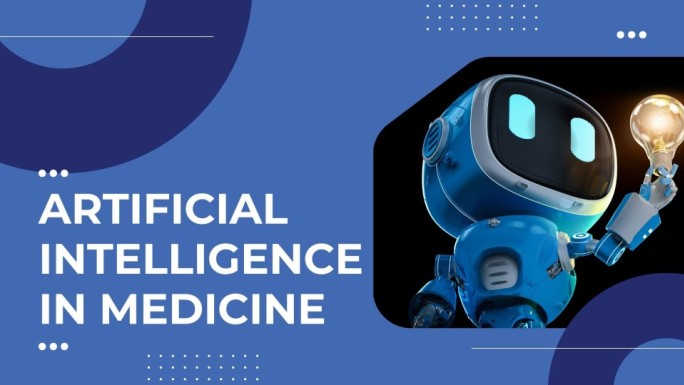Unveiling the Dark Side: Cons of Artificial Intelligence in healthcare Revealed
Imagine a future where AI analyzes medical scans with superhuman accuracy, diagnoses diseases in seconds, and tailors treatment plans with unprecedented precision. Artificial intelligence (AI) has undoubtedly revolutionized healthcare, promising a new era of efficiency and effectiveness.
However, as with any powerful technology, AI in healthcare comes with a hidden cost. While headlines sing the praises of AI's potential, lurking beneath the surface are significant drawbacks that demand our attention. This blog post peels back the curtain on the "dark side" of AI in healthcare, unveiling the potential pitfalls that could compromise patient care, erode privacy, and even displace human expertise.
Join us as we delve into the cons of AI in healthcare, exploring the challenges of algorithmic bias, data security vulnerabilities, and the over-reliance on AI for critical decision-making. We'll also explore mitigation strategies and call for a responsible approach to ensure AI serves as a powerful tool, not a detriment, to the future of healthcare.
Popular Cons of AI in Healthcare
Algorithmic Bias
One of the most concerning issues surrounding AI in healthcare is algorithmic bias. This bias arises from various sources, including historical disparities in healthcare data, biases in data collection methods, and even unintentional human biases during algorithm development.
AI algorithms are only as good as the data they're trained on, and if that data reflects existing societal biases, AI can inherit and amplify those biases. This can lead to unfair and inaccurate diagnoses, treatment recommendations, and resource allocation.
For example, an algorithm trained primarily on data from white patients might misdiagnose illnesses in patients of color. This algorithmic bias has the potential to exacerbate existing health disparities and ultimately harm patient outcomes.
Job Displacement
The rise of AI in healthcare has sparked anxieties about job displacement. While AI excels at automating repetitive tasks, some fear it could replace healthcare professionals entirely. This concern is particularly relevant for roles involving data entry, scheduling, and image analysis, which AI can handle with increasing efficiency.
While complete automation might be an exaggeration, AI's capabilities could significantly reduce the demand for certain positions, potentially leading to unemployment and a reskilling need within the healthcare workforce.
Data Privacy and Security
The integration of AI in healthcare hinges on the vast amount of sensitive patient data it utilizes. Medical records, genetic information, and real-time health data all become feeding grounds for AI algorithms.

This treasure trove of personal information raises serious concerns about data privacy and security. Cybersecurity breaches involving healthcare data are already a prevalent threat, and AI systems could introduce new vulnerabilities. A successful data breach involving an AI system could expose a massive trove of personal information, putting countless patients at risk. Malicious actors could potentially exploit these vulnerabilities to steal or misuse patient data for financial gain or even identity theft.
Furthermore, the very nature of AI, where complex algorithms analyze data without complete transparency, raises concerns about how patient information is used and whether individuals have sufficient control over their data.
Over-reliance on AI
Reliance on AI in healthcare presents a potential danger to patient safety and undermines the irreplaceable role of human expertise. While AI excels at analyzing vast amounts of data and identifying patterns, it currently lacks the nuance and intuition of experienced medical professionals.
Blindly trusting AI recommendations, without critical evaluation and consideration of a patient's unique medical history and individual circumstances, could lead to missed diagnoses, inappropriate treatments, and ultimately, poorer patient outcomes. It's crucial to remember that AI is a powerful tool, but it should always be used to augment, not replace, the judgment and experience of qualified healthcare professionals.
Lack of Transparency
Shrouded in complexity, many AI algorithms in healthcare function as opaque "black boxes." These systems analyze data and generate recommendations, but the intricate decision-making process behind those outputs remains a mystery.
This lack of transparency poses a significant challenge. Healthcare professionals struggle to understand how AI arrives at its conclusions, making it difficult to assess the validity of recommendations and troubleshoot potential errors.
Furthermore, a lack of transparency hinders accountability. If an AI-driven decision results in a negative outcome, it's difficult to pinpoint the cause or hold the system responsible. This opacity can erode trust in AI and ultimately hinder its successful integration into the healthcare landscape.
Mitigation Strategies
To address the cons of AI in healthcare, there are some solutions below:
Combating Algorithmic Bias: To mitigate bias, we need diverse datasets that represent the entire population AI algorithms serve. Healthcare institutions and developers should actively seek data that reflects different demographics, socioeconomic backgrounds, and health conditions. Additionally, fostering explainable AI (XAI) techniques will allow us to understand how algorithms arrive at decisions, enabling the identification and correction of potential biases.
Upskilling the Workforce: Job displacement due to AI is a concern, but it's more likely to transform existing roles. Investing in reskilling and upskilling programs can equip healthcare professionals with the skills needed to work alongside AI. These programs could focus on areas like data analysis, AI literacy, and human-centered care, ensuring a well-rounded workforce that leverages both human expertise and AI capabilities.

Prioritizing Data Security: Robust cybersecurity measures are crucial. Healthcare institutions should invest in advanced encryption, access control systems, and regular security audits. Additionally, strict regulations regarding data storage, access, and sharing are necessary to minimize the risk of breaches and misuse of patient information. Patients themselves should also be empowered to understand how their data is used and have control over who can access it.
Striking a Balance with AI: AI should be viewed as a powerful tool to augment human decision-making, not replace it. Healthcare professionals must maintain a critical eye when evaluating AI recommendations, considering a patient's unique medical history and context. Furthermore, fostering open communication between patients, doctors, and AI systems can build trust and ensure informed decision-making.
Transparency in AI Development: The healthcare industry needs to embrace transparency in AI development and deployment. This includes making algorithms more interpretable through XAI techniques. Additionally, clear communication about how AI is used, the limitations of the technology, and how patient data is safeguarded is crucial for building trust with both healthcare professionals and patients.
By implementing these solutions, we can navigate the ethical challenges and unlock the full potential of AI in healthcare, ensuring it serves as a force for good, improving patient care and outcomes while safeguarding privacy and security.
Conclusion
Artificial intelligence holds immense promise for revolutionizing healthcare, but as with any powerful technology, it's not without its drawbacks. This blog post has shed light on the potential pitfalls of AI in healthcare, from algorithmic bias and data security vulnerabilities to overreliance and a lack of transparency.
However, by acknowledging these challenges, we can take proactive steps to mitigate them. By fostering diverse datasets, prioritizing data security, and promoting responsible AI development, we can ensure AI serves as a valuable tool that complements human expertise. The future of healthcare lies in striking a balance, leveraging the power of AI while safeguarding patient privacy, and ensuring that critical thinking and human compassion remain at the forefront of medical decision-making.
Let's embrace AI in healthcare with a cautious and responsible approach, fostering open dialogue and collaboration among stakeholders. Together, we can ensure AI fulfills its potential to improve patient outcomes and usher in a new era of ethical and effective healthcare.





